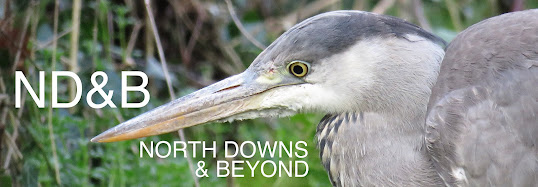Even the bad times were good
I've just watched a television documentary about cricketer Ian Botham, who, thirty years ago today, almost single-handedly defeated the Australians in the famous Headingley test. The first half of the programme, that looked at his career between 1974 - 1981, had me drowning in nostalgia - not just for the cricketing performances that I followed so avidly at the time, but also because these same years also neatly dovetailed into my early birding life. Botham's test debut recalls a trip to Abinger Common. His rise to 'first-name on the team sheet' was at the same time that I began my mercifully brief flirtation with twitching. His glorious summer of 81 paralleled my own semi-residence at Dungeness. At first I was at a loss to put a finger on what it was that bestowed upon this period really good reasons to cherish it so much...
Viewing any archive news footage from this period is a shock - Britain looked so grimy and downtrodden. The birding was similar. Most birders dressed in ex-army surplus, wore long greasy hair, spots were rife and we carried, by today's standards, poor optics. Rare birds were rare - by that, I mean rarer than now. There weren't so many people out looking for them and thus there weren't so many clued up birders. I think that there had been maybe 25 records each of Radde's and Dusky Warblers in the UK by the mid-1970s - there wasn't as much to go and see. Field guides were few and limited in scope. Getting the 'gen' - good seventies word that - necessitated contacts that had to be earned. If you weren't in with somebody with a car, you had to hitch. And if you did get a lift, cars always seemed to break down back then. It took longer to get to places because of the lack of by-passes and motorways. It makes you wonder why plenty of us consider this the golden age.
Youth has a lot to do with it, of course. You can never replicate the initial wonder that comes when something takes you over and burns with a passion. Anything is possible in those early years - I was going to be an observatory warden and most probably be on the rarities committee by the time I was 30 (no I didn't on both counts). Maybe because it wasn't easy - no pagers, no detailed ID, no relative affluence - each birding success was that much more cherished because we had to work for it.
I do look back on that period with a smug satisfaction that I lived through it and birded through it. Punk, riots, Wallcreepers (I had to get that in) and a stocky bearded Englishman who defined a sporting era by picking up a bat and ball, walking out onto a cricket pitch and giving it large to eleven Australian tourists.
Viewing any archive news footage from this period is a shock - Britain looked so grimy and downtrodden. The birding was similar. Most birders dressed in ex-army surplus, wore long greasy hair, spots were rife and we carried, by today's standards, poor optics. Rare birds were rare - by that, I mean rarer than now. There weren't so many people out looking for them and thus there weren't so many clued up birders. I think that there had been maybe 25 records each of Radde's and Dusky Warblers in the UK by the mid-1970s - there wasn't as much to go and see. Field guides were few and limited in scope. Getting the 'gen' - good seventies word that - necessitated contacts that had to be earned. If you weren't in with somebody with a car, you had to hitch. And if you did get a lift, cars always seemed to break down back then. It took longer to get to places because of the lack of by-passes and motorways. It makes you wonder why plenty of us consider this the golden age.
Youth has a lot to do with it, of course. You can never replicate the initial wonder that comes when something takes you over and burns with a passion. Anything is possible in those early years - I was going to be an observatory warden and most probably be on the rarities committee by the time I was 30 (no I didn't on both counts). Maybe because it wasn't easy - no pagers, no detailed ID, no relative affluence - each birding success was that much more cherished because we had to work for it.
I do look back on that period with a smug satisfaction that I lived through it and birded through it. Punk, riots, Wallcreepers (I had to get that in) and a stocky bearded Englishman who defined a sporting era by picking up a bat and ball, walking out onto a cricket pitch and giving it large to eleven Australian tourists.


Comments
Graeme - the number of people out birding with bins and scope that cost a combined £3000+ is truly staggering. It certainly does not bestow upon them any guarantee of knowledge, that's for sure.